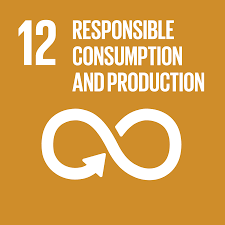The action and its aims
Cape Town’s Food Systems Programme aims to create a food system that can produce enough affordable, nutritious, sustainably grown food and can handle shocks. Food system elements will be mainstreamed into relevant policies, strategies, plans, and by-laws to achieve this. The City wants to develop a disaster risk reduction response, prepare for food system disruption scenarios, and build food safety nets. The FSP also stimulates sustainable farming and facilitates a circular food economy. Moreover, public food procurement campaigns, targeted nutrition interventions, and improved food safety should encourage healthy diets.
When it was introduced
The Food Systems Programme in Cape Town was introduced in 2021 after the COVID-19 crisis and 2018 water crisis exposed the weaknesses of the food system. In 2019, Cape Town’s Resilient Strategy had already identified food security as a key focus point.
Why it was needed
Even before the COVID-19 pandemic, South Africa was struggling with considerable levels of food insecurity.[1] In 2017, around 16% of households reported facing challenges in accessing sufficient food, with 5,5% of households characterizing their food access as severely deficient. Additionally, around 11% of households expressed vulnerability to hunger. The pandemic only exacerbated the situation. For example, by April 2020, nearly 47% of the adult population reported a scarcity of financial resources to purchase food. Furthermore, during the months of May and June 2020, a notable 23% of respondents indicated that at least one individual within their household experienced going to bed hungry over due to insufficient food availability.[2]
Who initiated it, who is involved
The Food System Programme (FSP) was initiated by the City of Cape Town with the help of the city-led Food System Working Group consisting of provincial government representatives and academics.
Impacts to date
The Food Systems Working group have met more than 13 times since August 2019. These interactions have had impact by enabling food systems mainstreaming into City policy, including inputs to the Urban Agriculture Policy, Informal Sector Support Framework, District Spatial Plans, Metropolitan Spatial Development Framework, Comprehensive Integrated Transport Plan, Informal Trading Norms and Standards and recently and most significantly, for the first time – the Integrated Development Plan, ensuring a five-year commitment.
[1] https://healtheconomicsreview.biomedcentral.com/articles/10.1186/s13561-022-00375-x
[2] https://healtheconomicsreview.biomedcentral.com/articles/10.1186/s13561-022-00375-x


